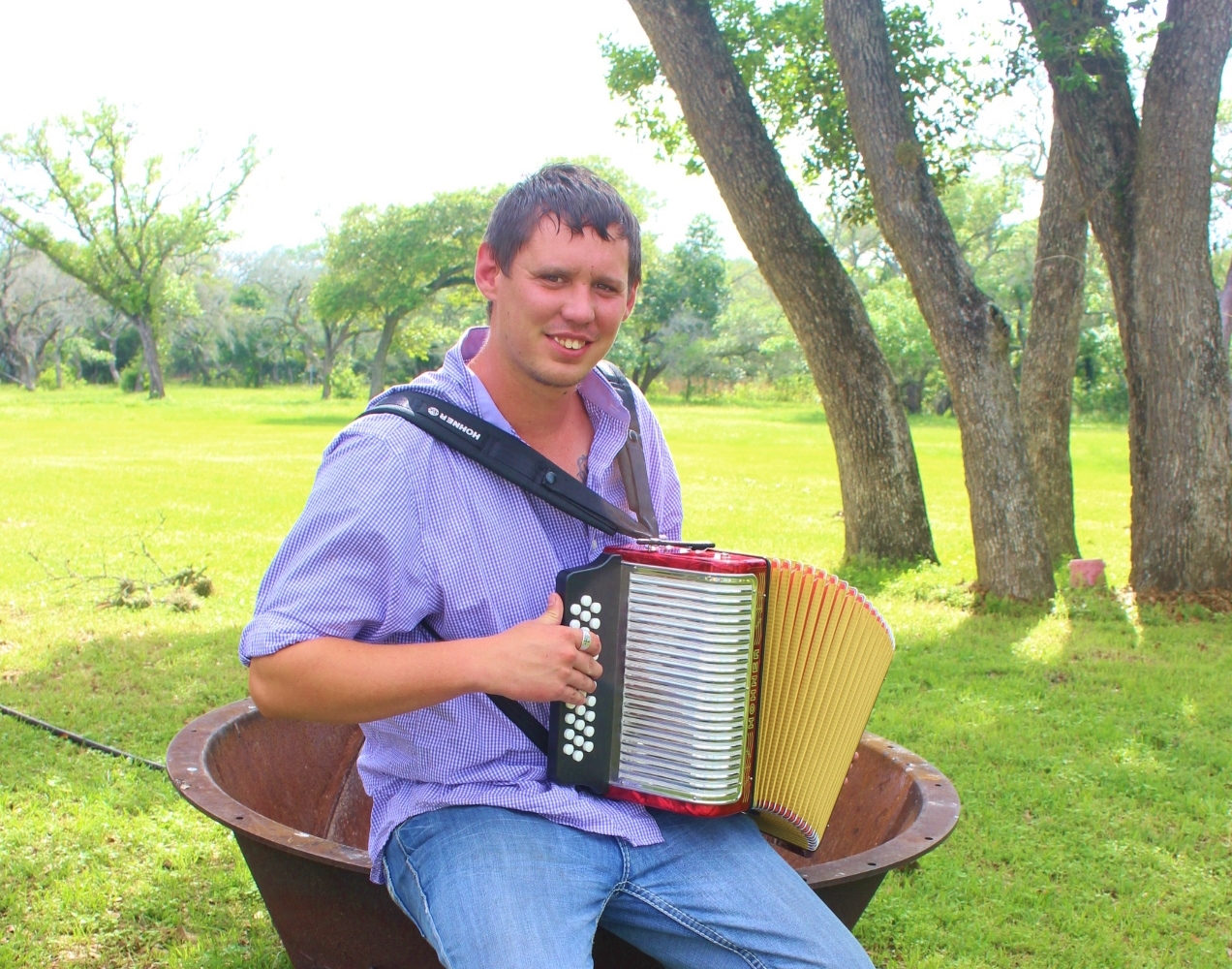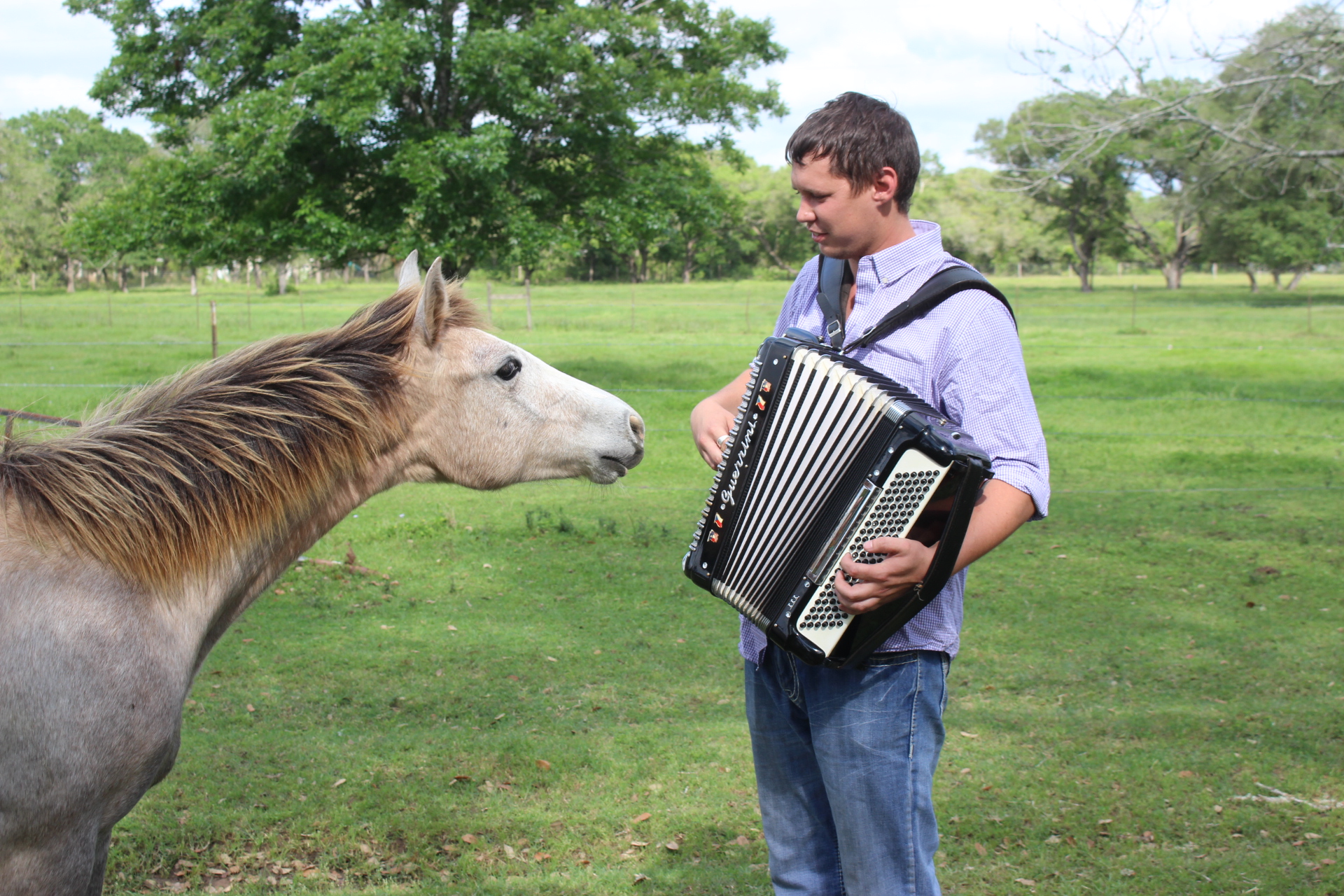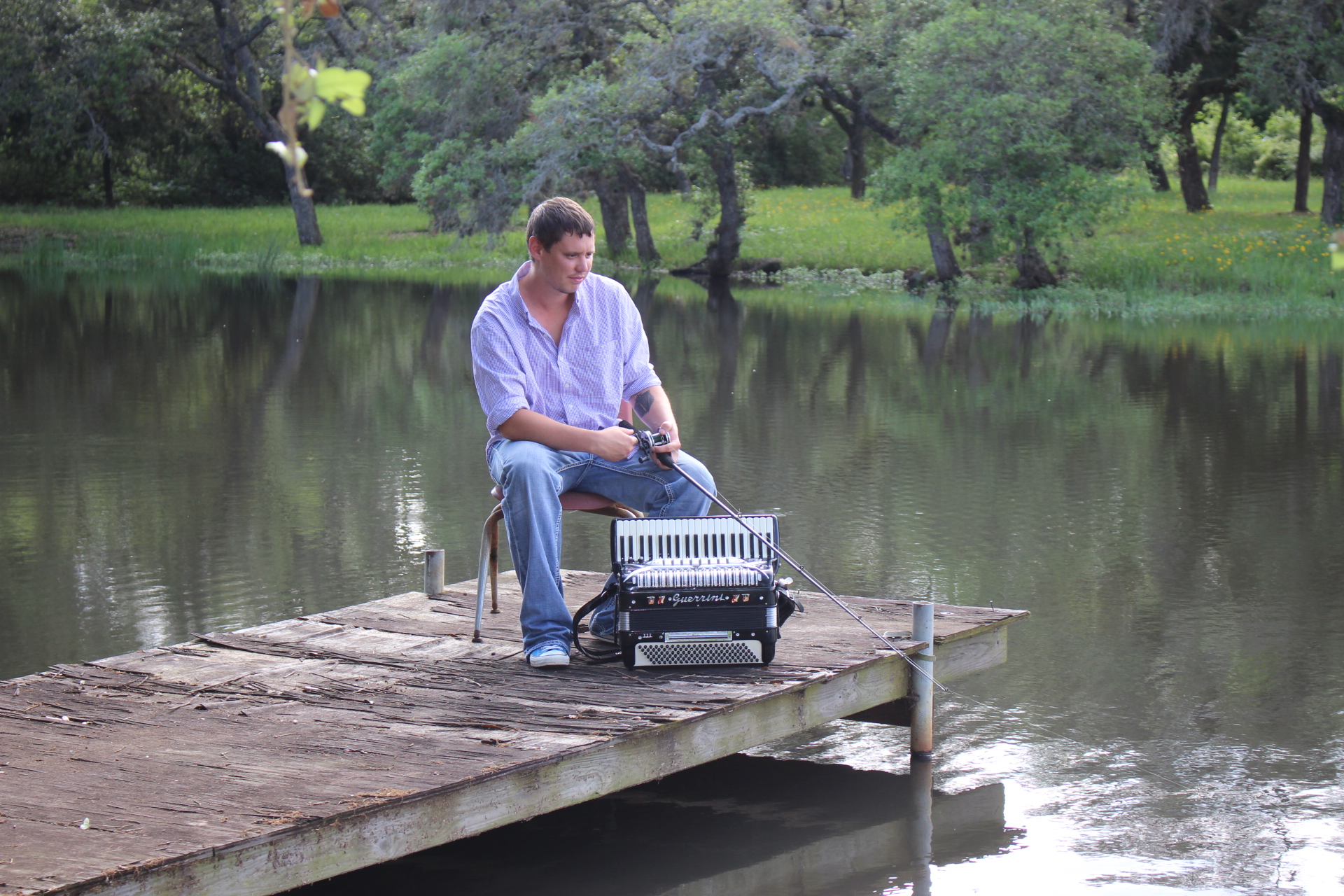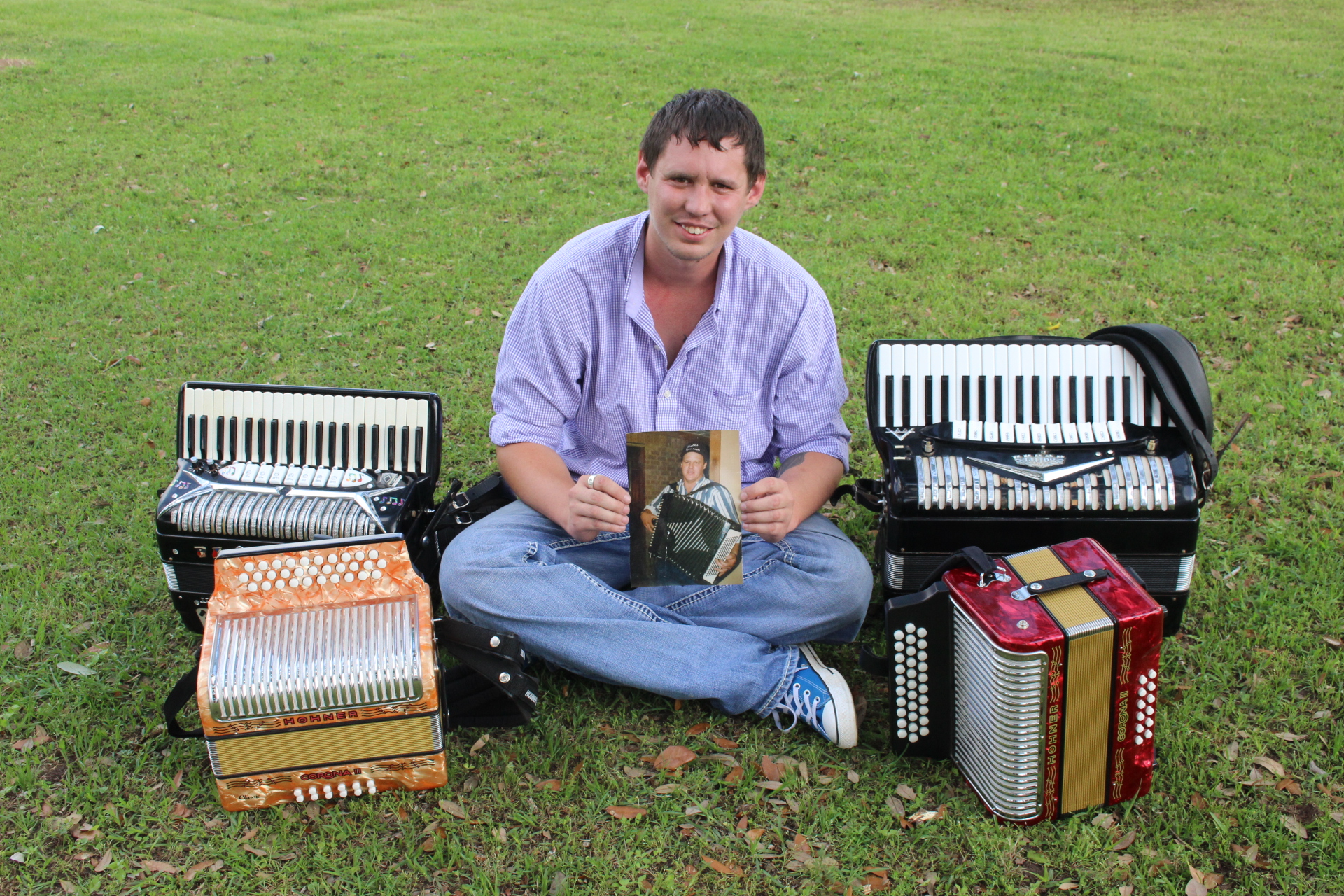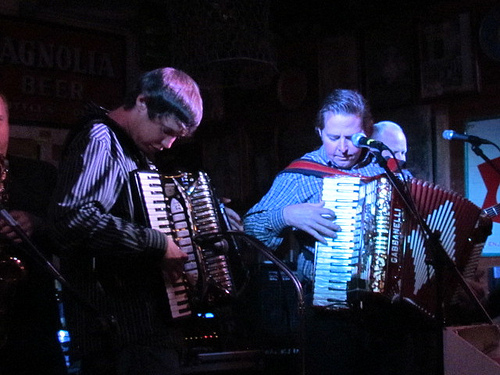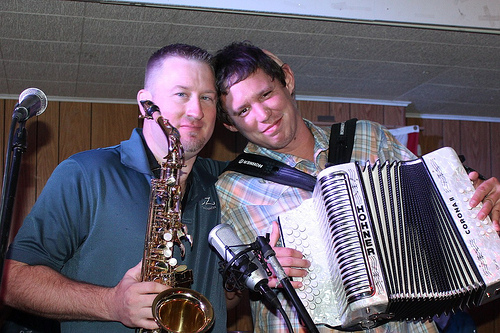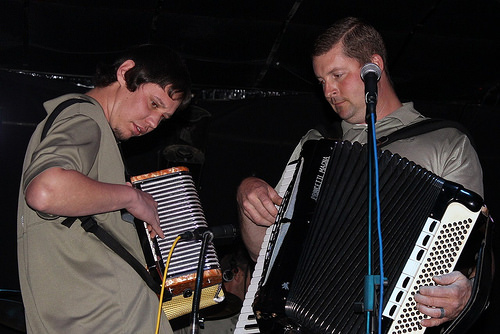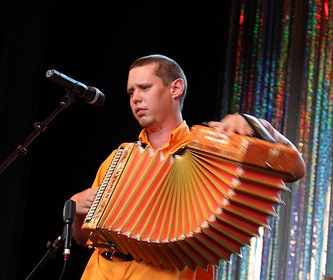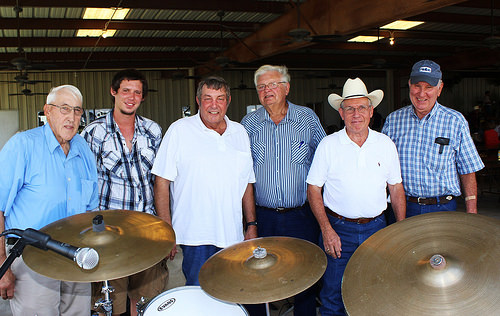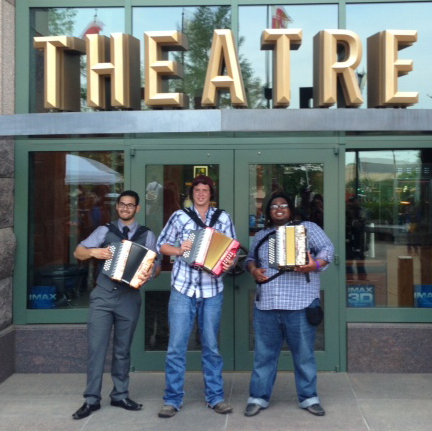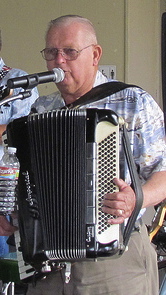By Gary E. McKee
It’s picnic season again, time to check the tire pressure in the car, and head down the road to a church picnic. To help get you in the mood, order Donnie Hons’ single song cd The Church Picnic Polka from the PolkaBeat store. Also available as a digital download.
Donnie is a singer – songwriter with deep Lavaca County roots. He grew up in the polka/waltz culture, but his musical tastes guided him to an old-school type country music style which perfectly suits his baritone voice. While still in high school, Donnie started singing with the legendary Bobby Lee Nightriders in the Victoria area. Since then he has performed with many country bands and sat in with all flavors of bands at numerous picnics and venues singing and plying his bass. The Nightriders still perform four times a year at Da Costa Hall to packed dance floors as they provide “country and western dancing the way it was meant to be.”
Inspiration in a deer blind
John Rivard, the former writer for TPN instilled an idea into Donnie’s mind that he should write a song about the church picnics of the area. The idea kept floating around in his brain, until one slow day in a deer blind in the Hill Country, he started jotting down some words for a song. While searching for a melody to put them to, the obvious choice would be a polka beat as that sound is what sets most picnics apart from other gatherings. After smoothing out the lyrics, he enlisted Tommy Detamore of Cherry Ridge Studios in Floresville who contributed his studio and his steel guitar to help bring it together. Chris Rybak showed up to provide the accordion sound and Daniel Jobb of The Red Ravens paired with Donnie’s bass to make the backbone rhythm.
The resulting single, The Church Picnic Polka, is a lively trip around Central Texas as the singer and his date attempt to dance their boots off at all the picnics from Prazska Pout in Praha to Shiner to Hostyn (where Donnie sang the song with the Czechaholics at the recent picnic.) The melody, like the lyrics, incorporates many of the musical styles that will be heard this summer: polka, country steel guitar, and conjunto. You can hear this song on radio shows hosted by Alfred Vrazel, Danny Zapletal, Clinto, and TKO on Texas Thunder.
Where the music's gone
In 2010, Donnie teamed with Joel Nava to record a single “Where the Music’s Gone” which laments the lack of old style country music being played on the radio today. In an interesting twist, he was contacted by Dorin Marincash of Romania (the European country) to get a copy of this song written by Donnie. Dorin is a radio producer that goes by the name “The Transylvanian Cowboy.” Old school country and Texas music has always been by far more popular in Europe than the U.S.
One of Donnie’s next projects will be in the Cowboy Poetry category collaborating with Bobby Flores to record Donnie’s moving poem about a snow-bound Montana Cowboy in 1880 writing a letter back home to his folks at Christmas time.
Donnie Hons can be contacted on Facebook and be seen performing with Gone Country at the Sweet Home Dance Hall, so get a hold of his Church Picnic Polka cd and see how many of the picnics that he sings about you can make this summer. Check out the list of church picnics on polkabeat.com.



